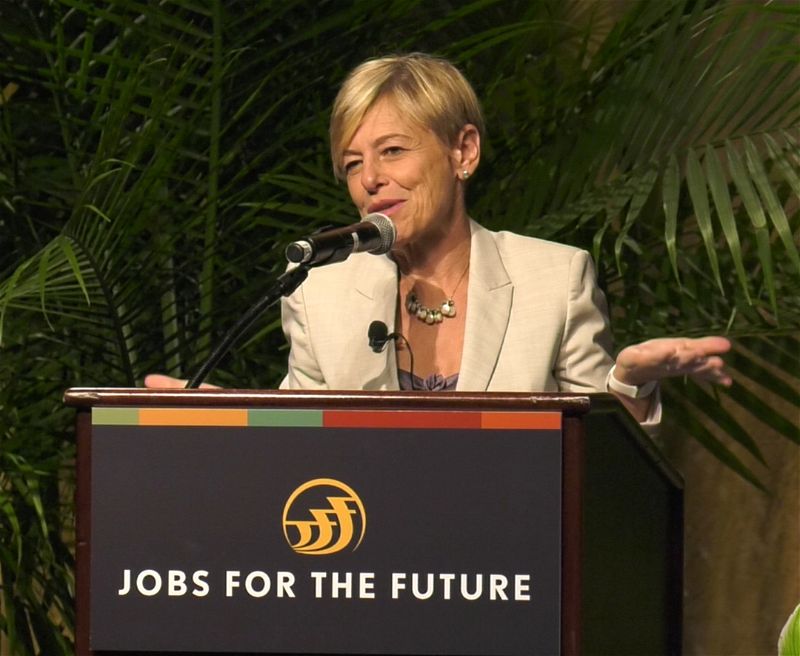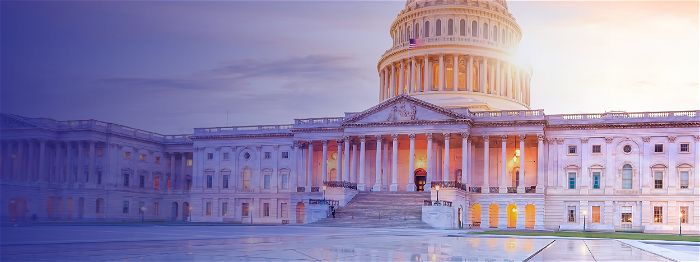“JFF was ahead of its time then and it’s ahead of its time now,” Pennington, now executive vice president of the Ford Foundation, told JFF employees crowded into a conference room and watching online.
“You’re really modernizing and reapplying those core founding ideas for a society that has still not figured out these problems and, if anything, has them in an even more serious way.”
Just as she and White “took a chance” on each other, a young woman and a near-retirement-age man, JFF is urging the nation’s employers to consider hiring a broad range of nontraditional employees by tapping the talent of populations most frequently left behind in the economy.
“If you look at the jobs that are most likely to be lost, they are disproportionately occupied by women and people of color,” Pennington said. “This is an organization that has always been one that has stood for something, that has been scrappy and young, that has taken a bet on young people and given them a chance to lead with young ideas and bold ideas.”




